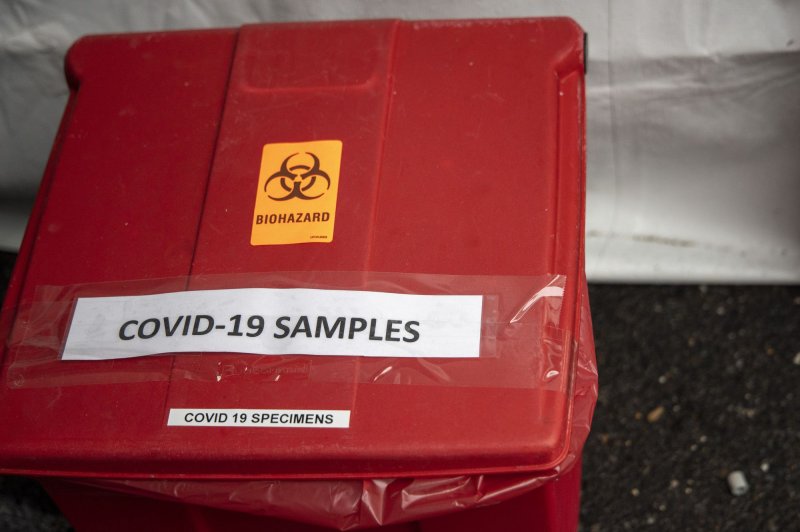A collection of COVID-19 test samples are seen at a testing site in Arlington, Va., on March 19. File Photo by Tasos Katopodis/UPI |
License Photo
Oct. 15 (UPI) -- Scientists at the University of Oxford in Britain announced Thursday they have developed a rapid diagnostic test that can detect COVID-19 in under five minutes.
Physicists at the university said the method uses artificial intelligence software to tell positive tests of SARS-CoV-2, the novel coronavirus that causes COVID-19, from negative samples with a high degree of accuracy.
The test can also be used to identify common respiratory pathogens, including influenza and seasonal human coronaviruses, physicist Achilles Kapanidis said.
"Unlike other technologies that detect a delayed antibody response or that require expensive, tedious and time-consuming sample preparation, our method quickly detects intact virus particles -- meaning the assay is simple, extremely rapid, and cost-effective," he said in a statement.
The method analyzes throat swab samples without the need for genome extraction, purification or amplification of the viruses, researchers said.
Short fluorescent DNA strands are used in the process to label coronavirus virus particles, which are photographed under a microscope. The software quickly and automatically identifies the virus present in the sample by analyzing labels which produce distinct patterns in various types of pathogens.
Warwick Medical School Dr. Nicole Robb said that when developed, the testing device will be useful in challenging conditions -- such as when the coronavirus is present with seasonal flu viruses, a situation some health experts call a "twindemic."
"A significant concern for the upcoming winter months is the unpredictable effects of co-circulation of SARS-CoV-2 with other seasonal respiratory viruses," she said.
"We have shown that our assay can reliably distinguish between different viruses in clinical samples, a development that offers a crucial advantage in the next phase of the pandemic."
Researchers said they plan to begin development for the testing device early next year and have it widely available a few months later.















